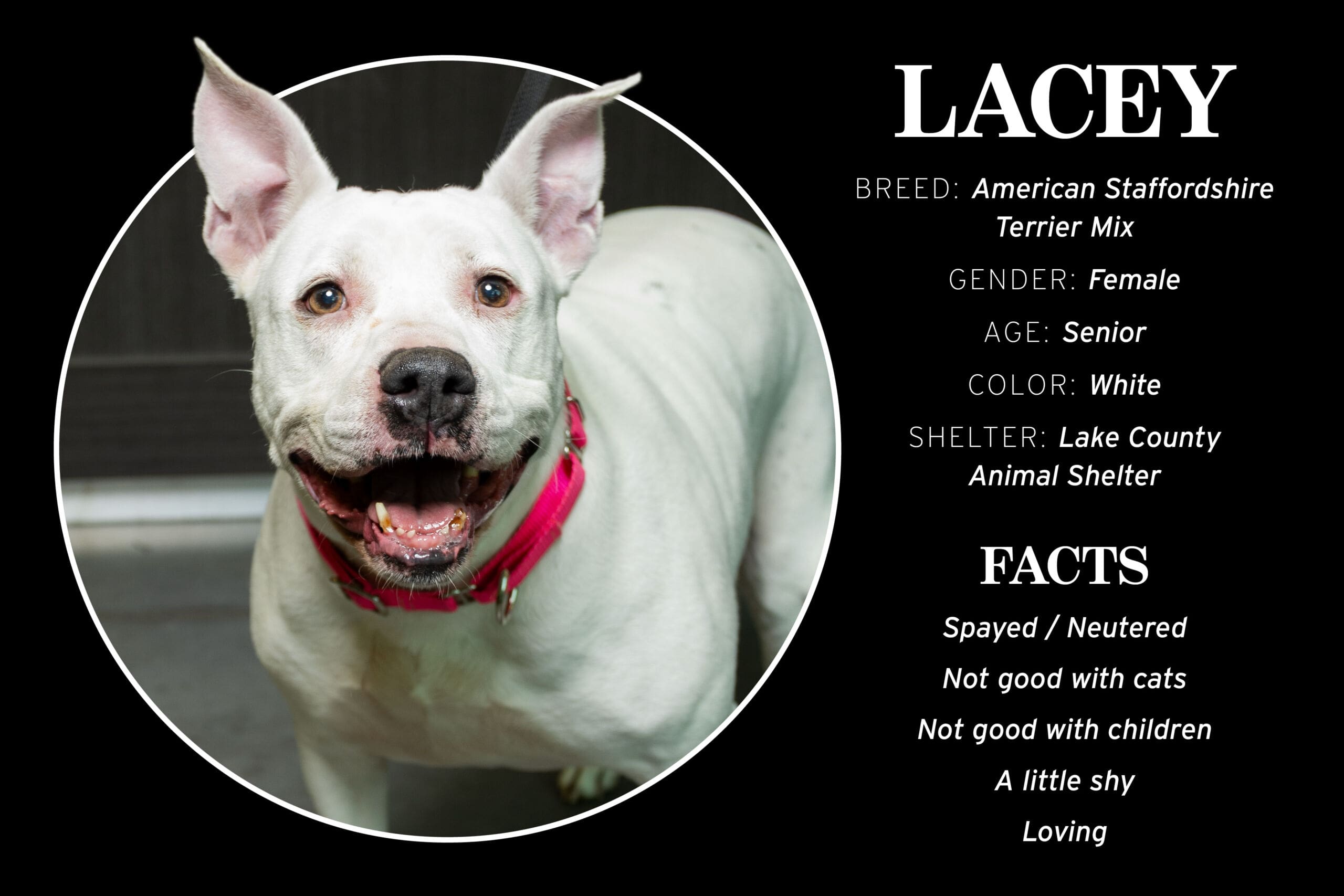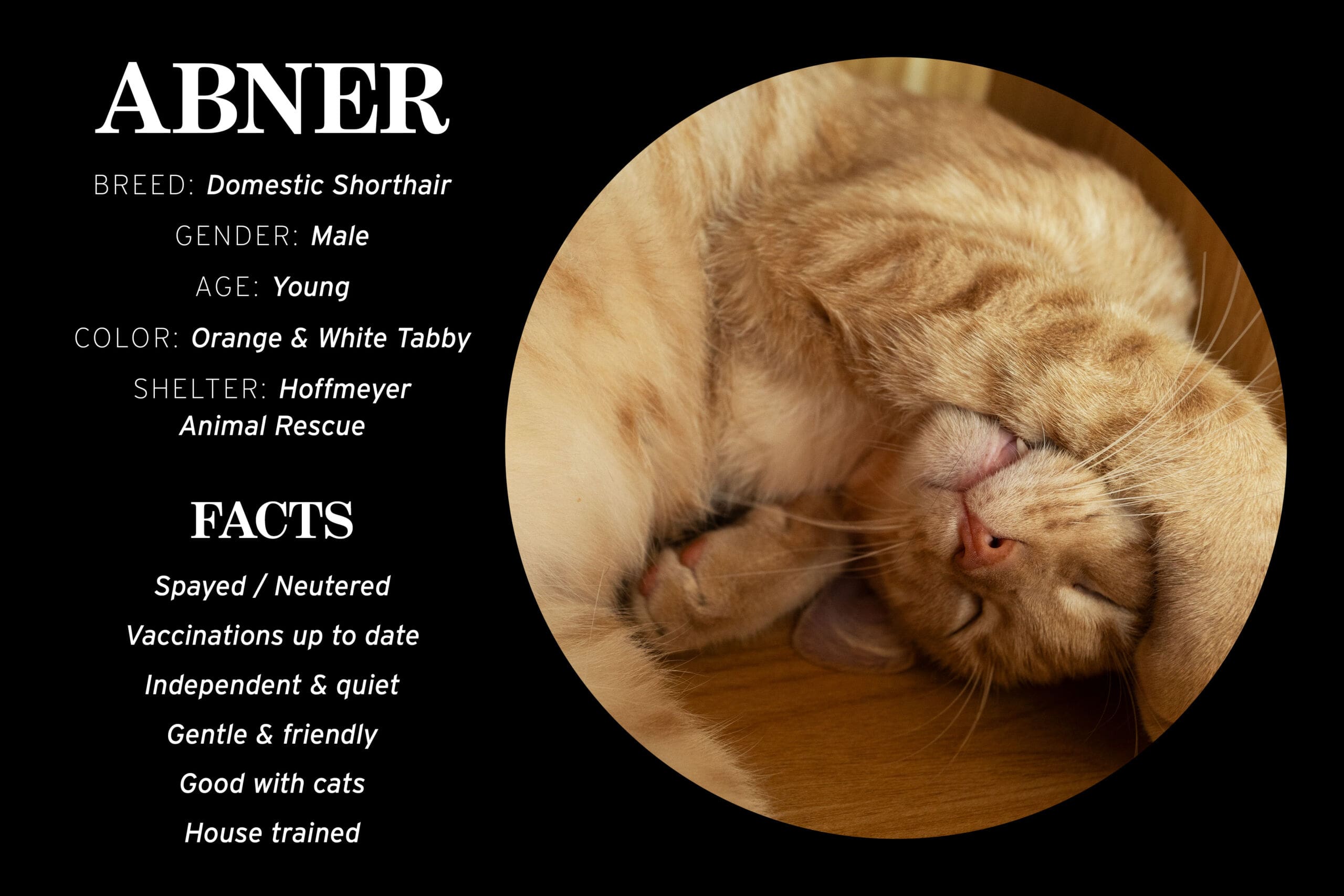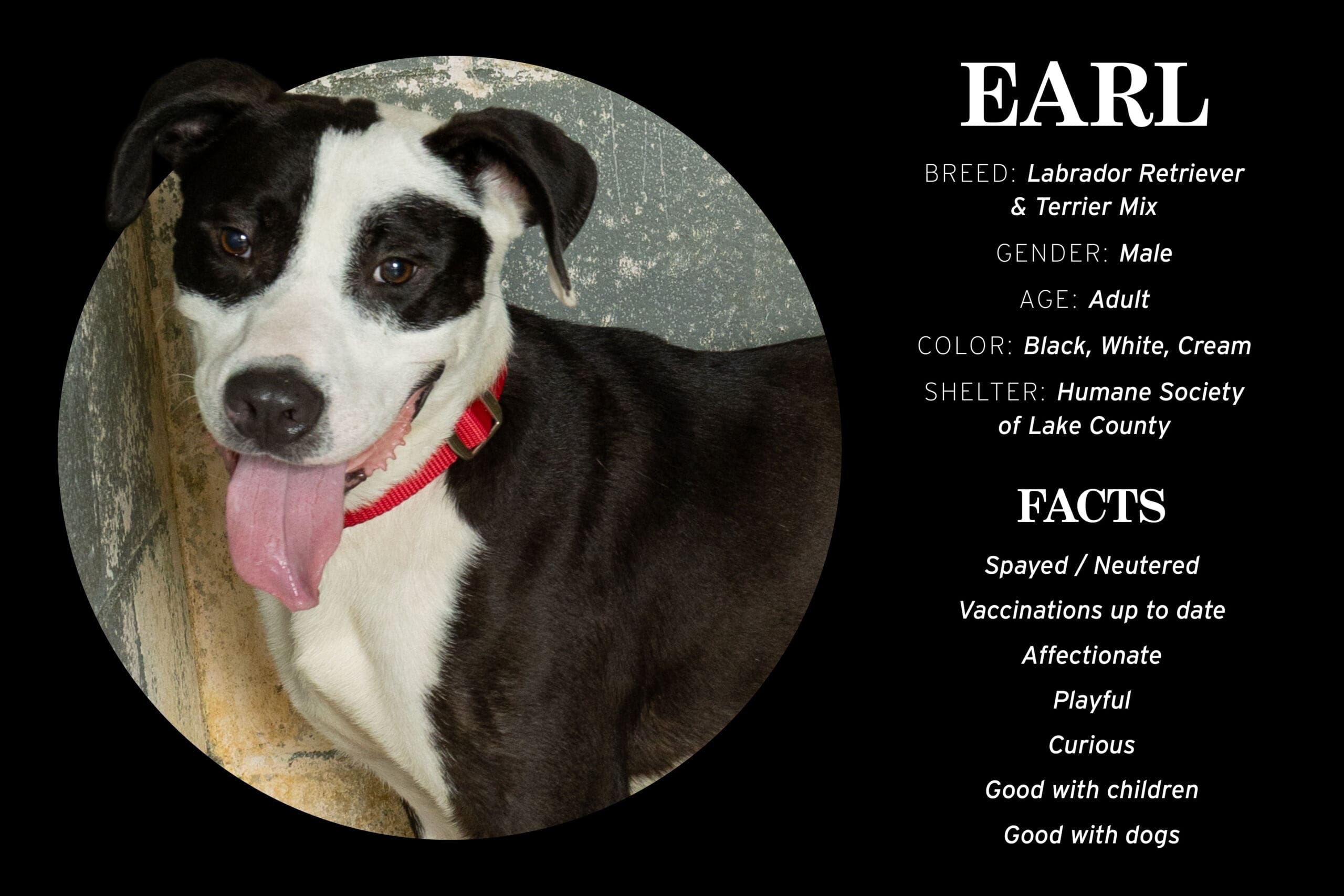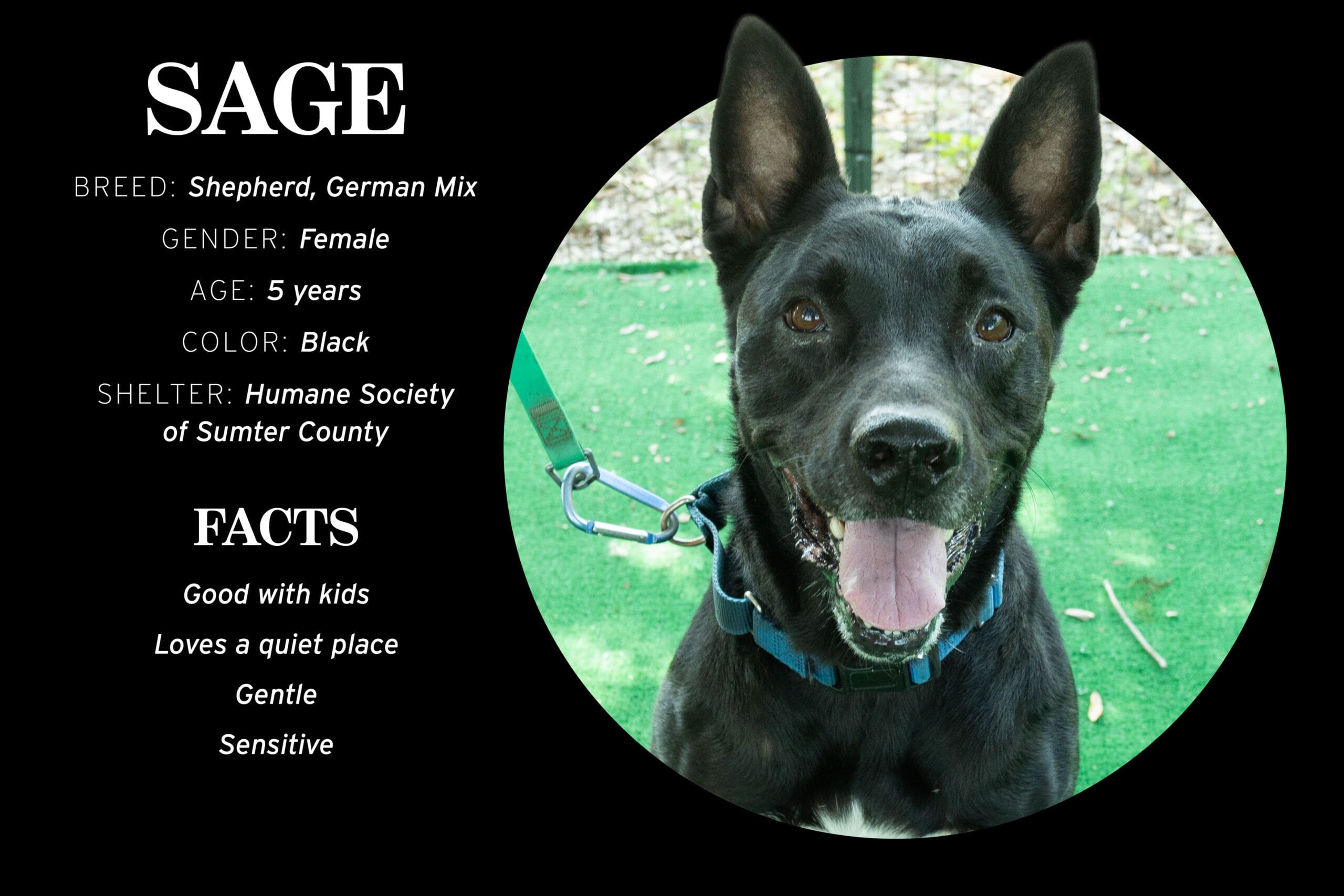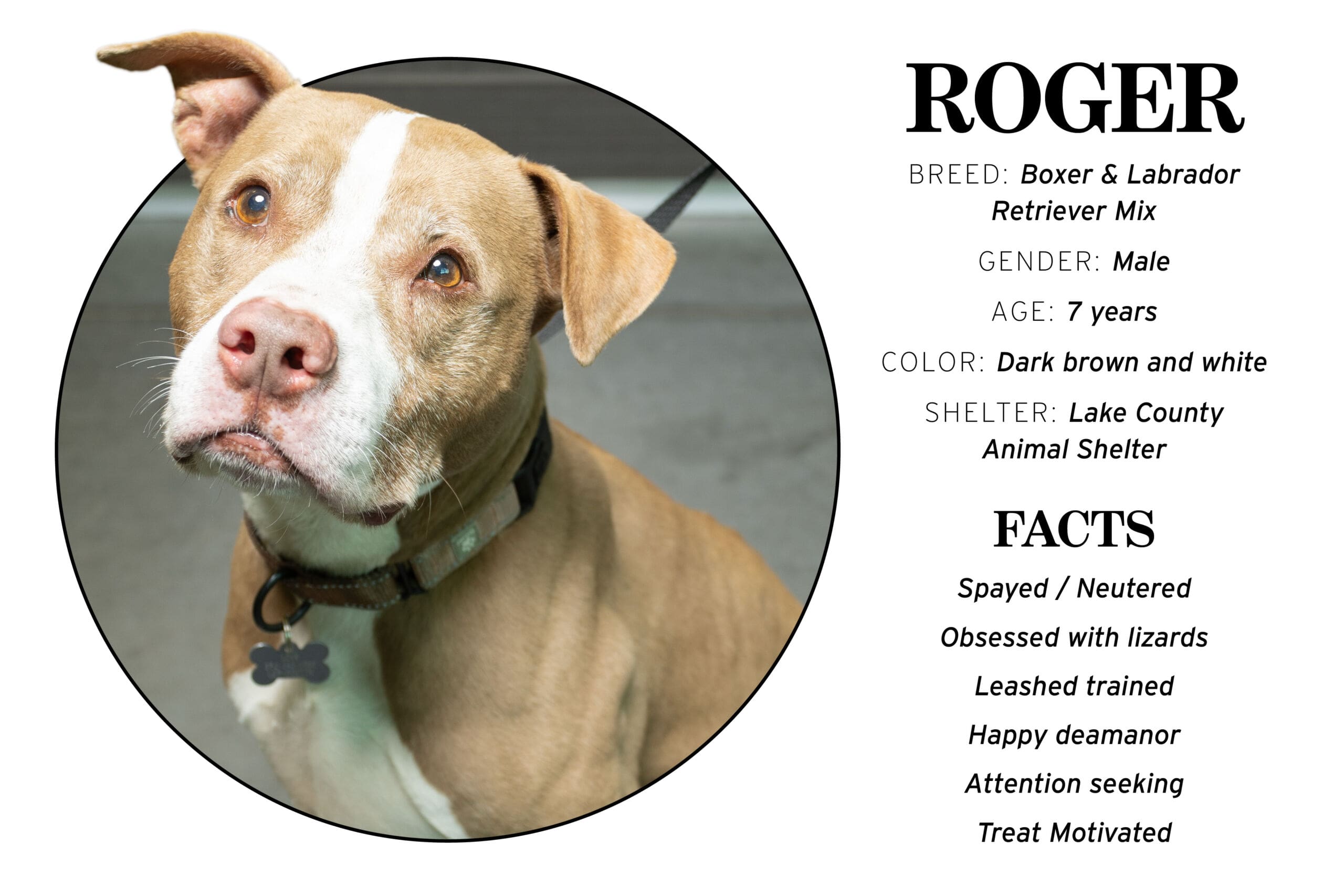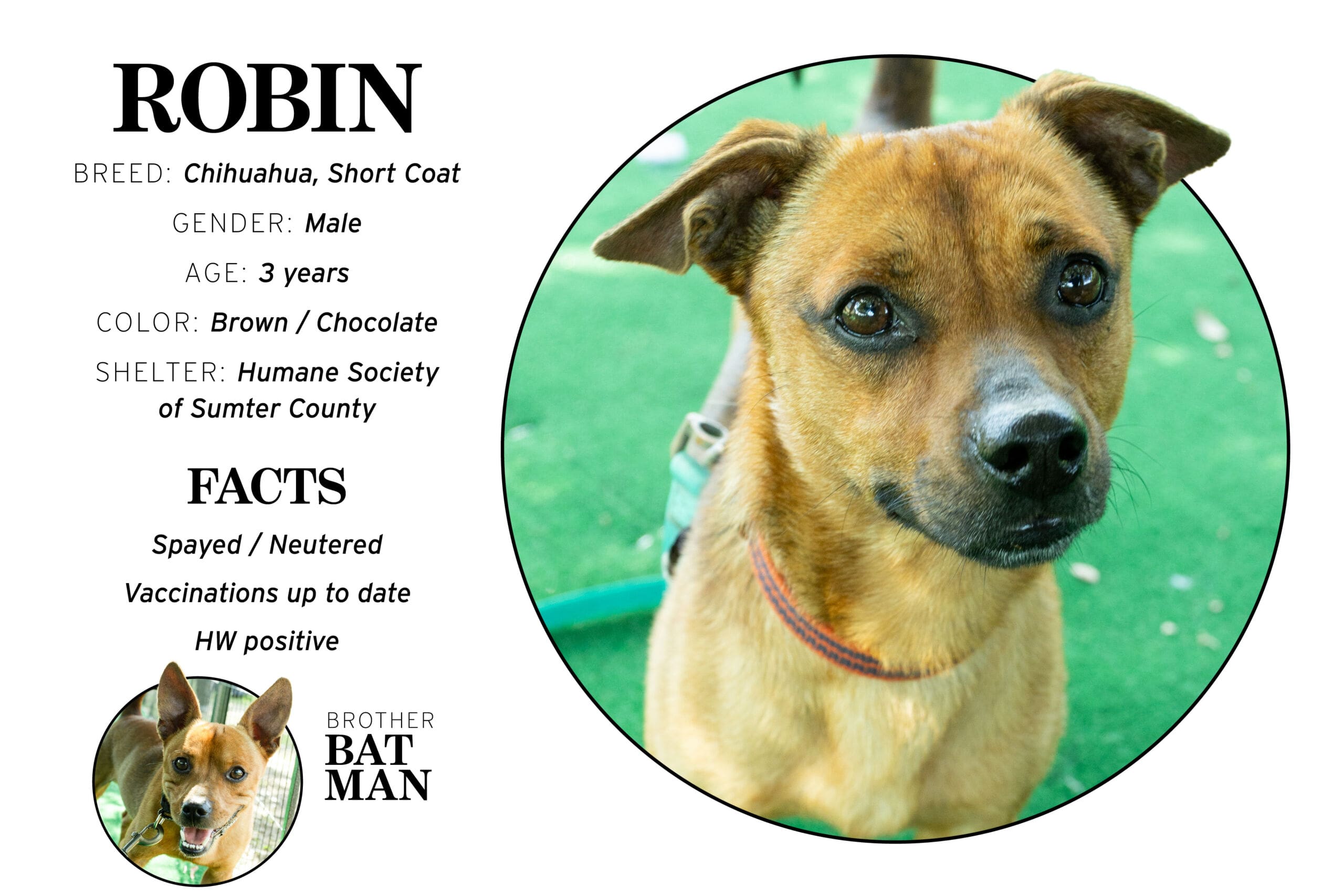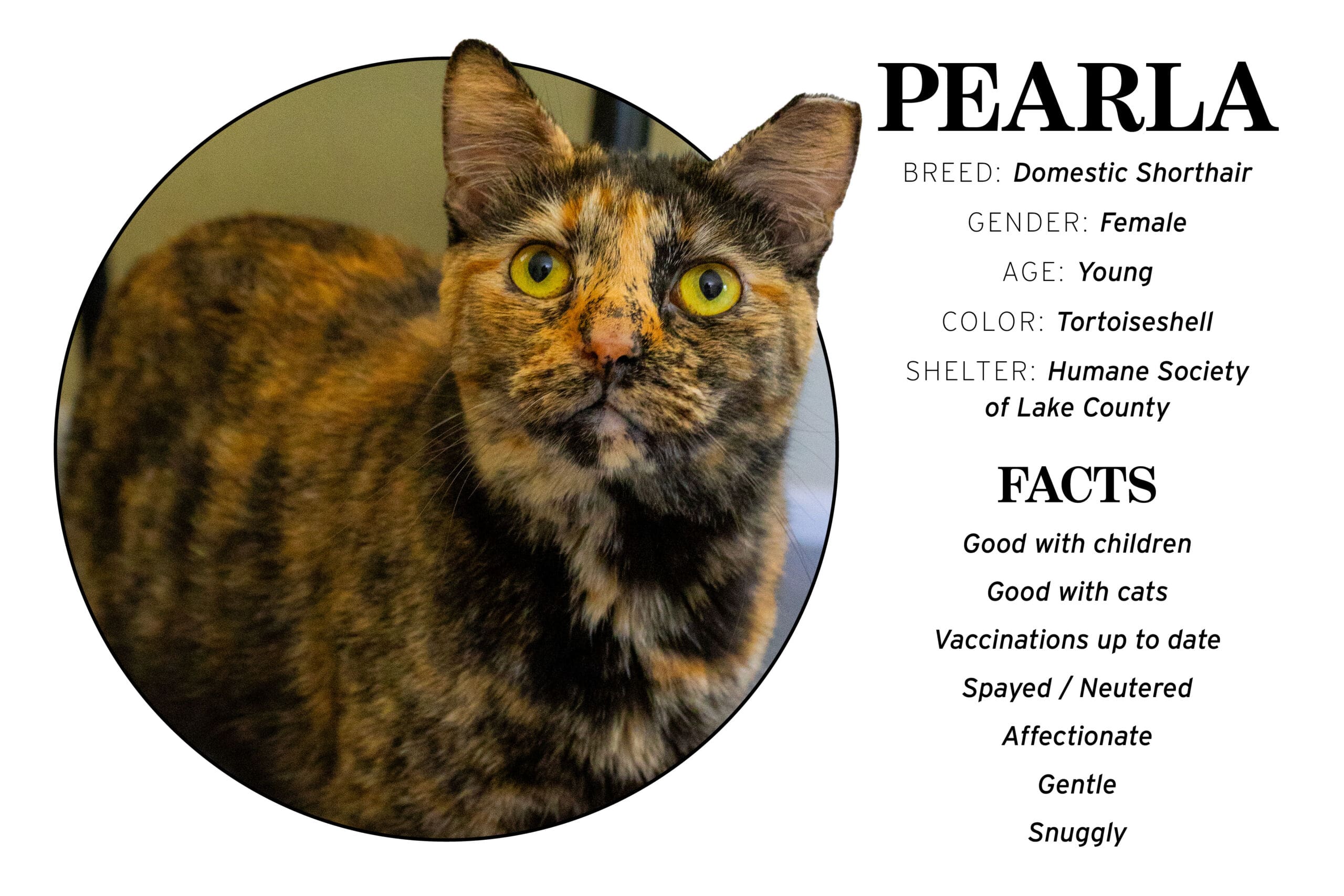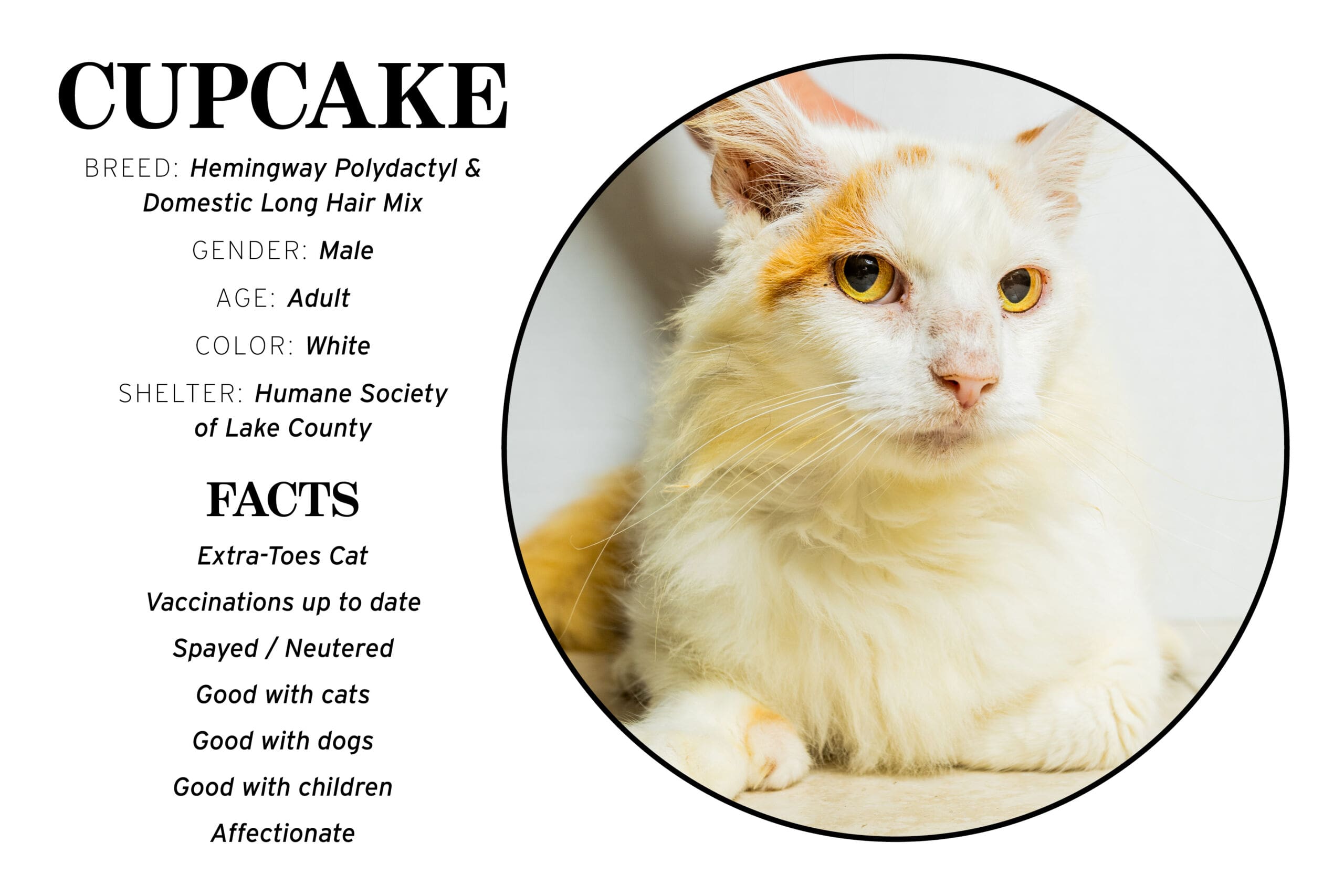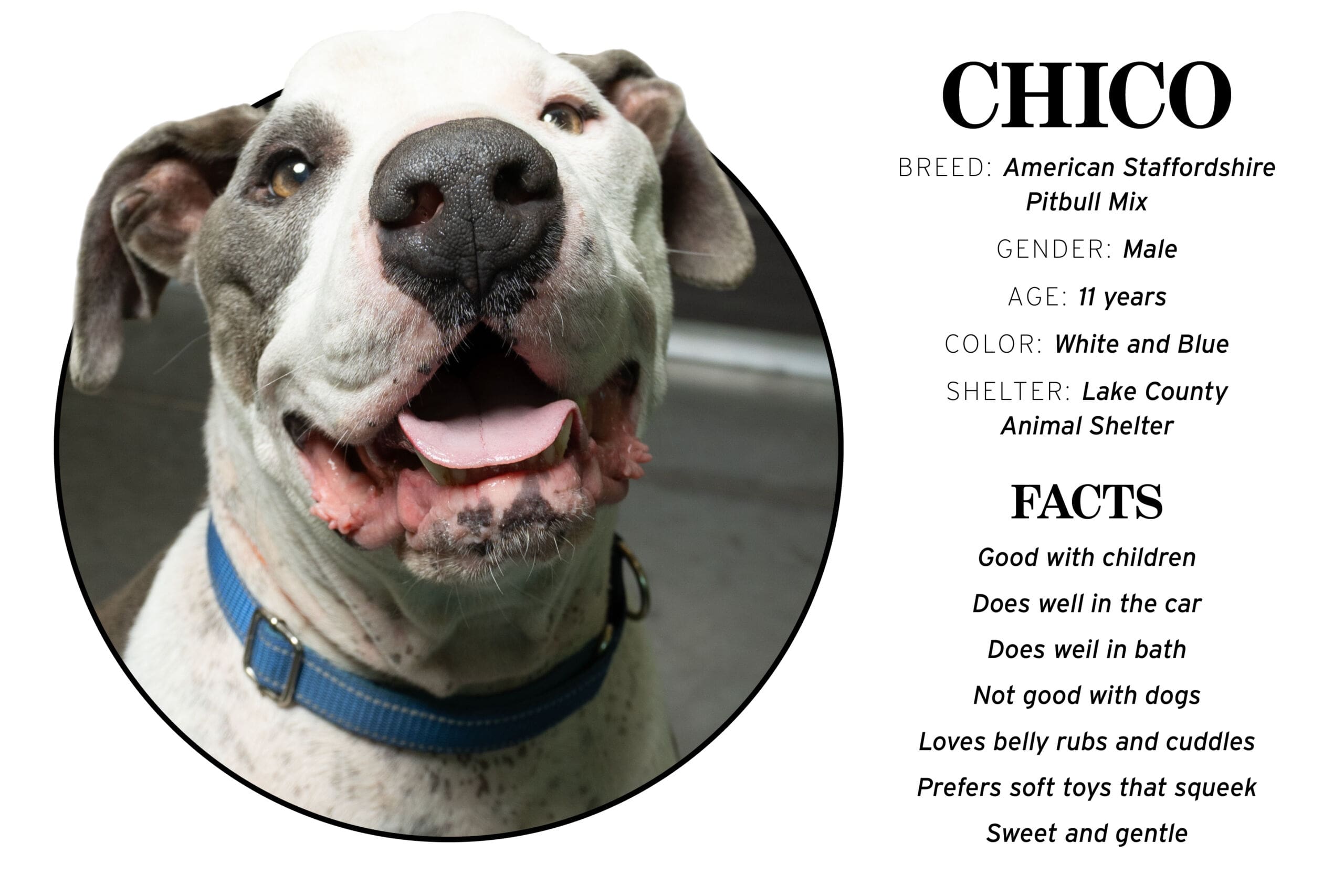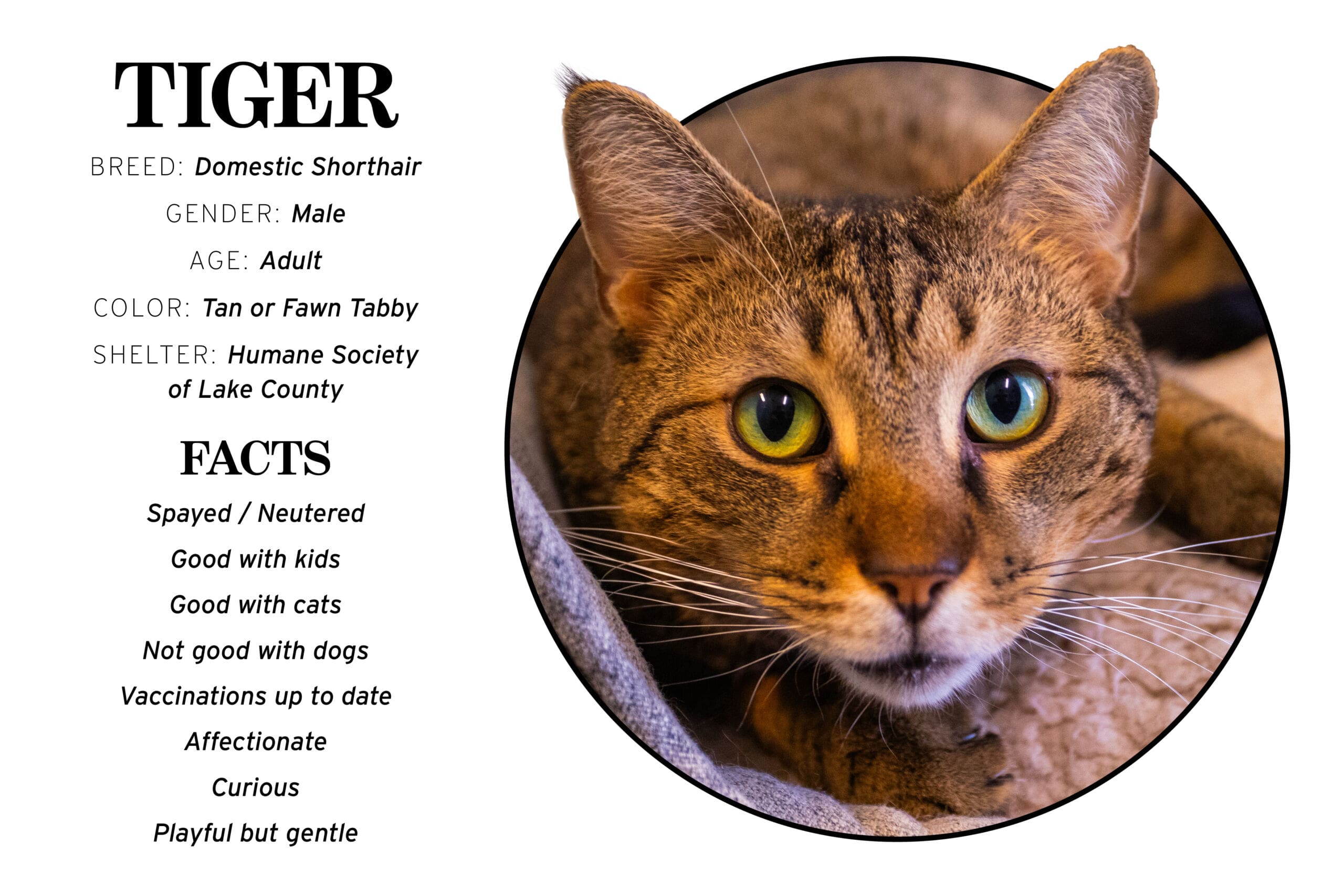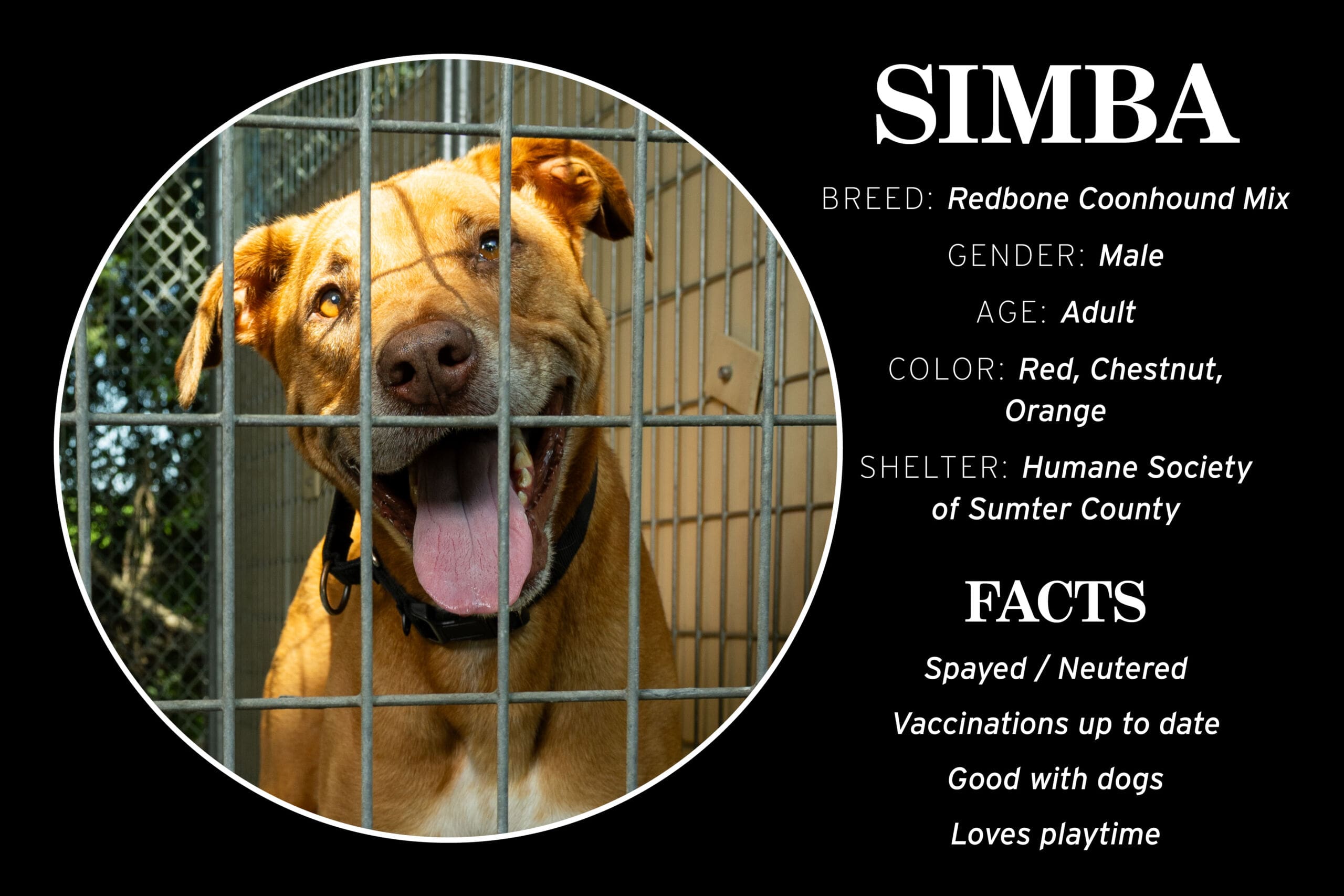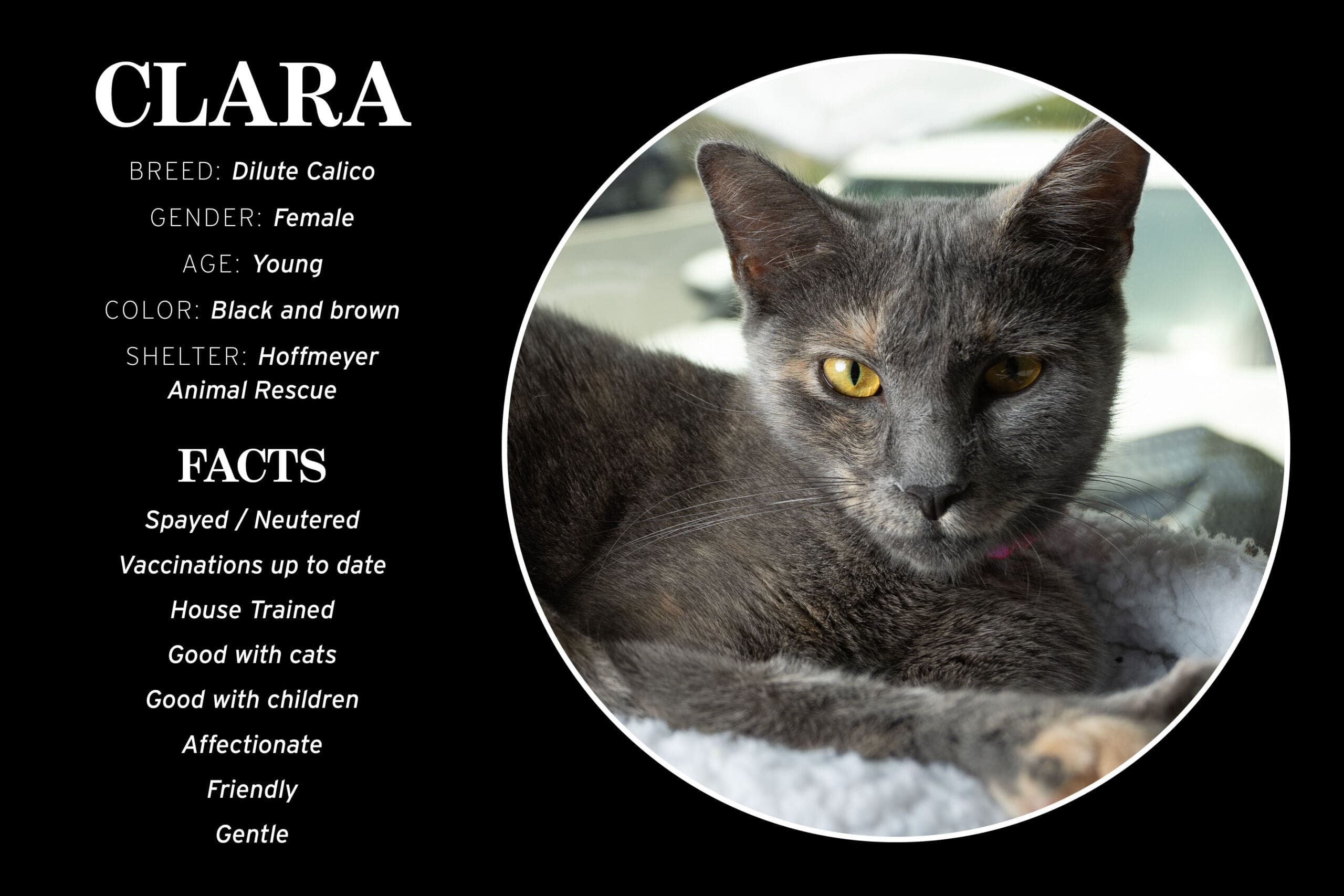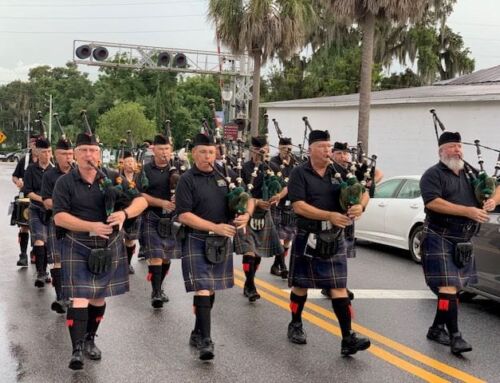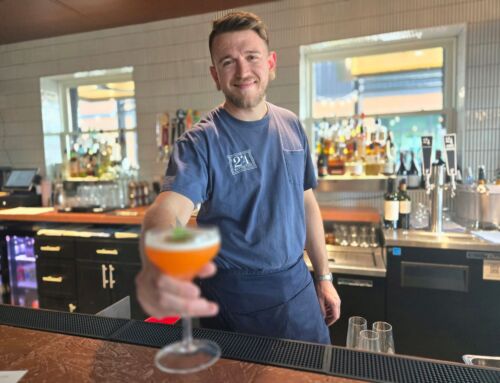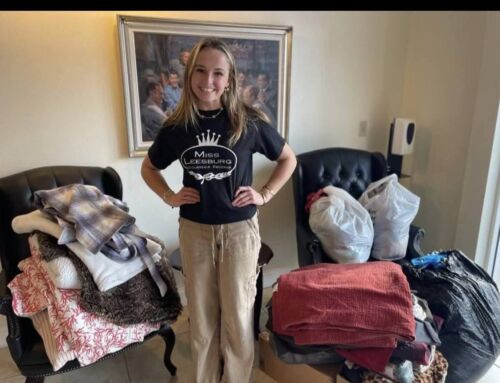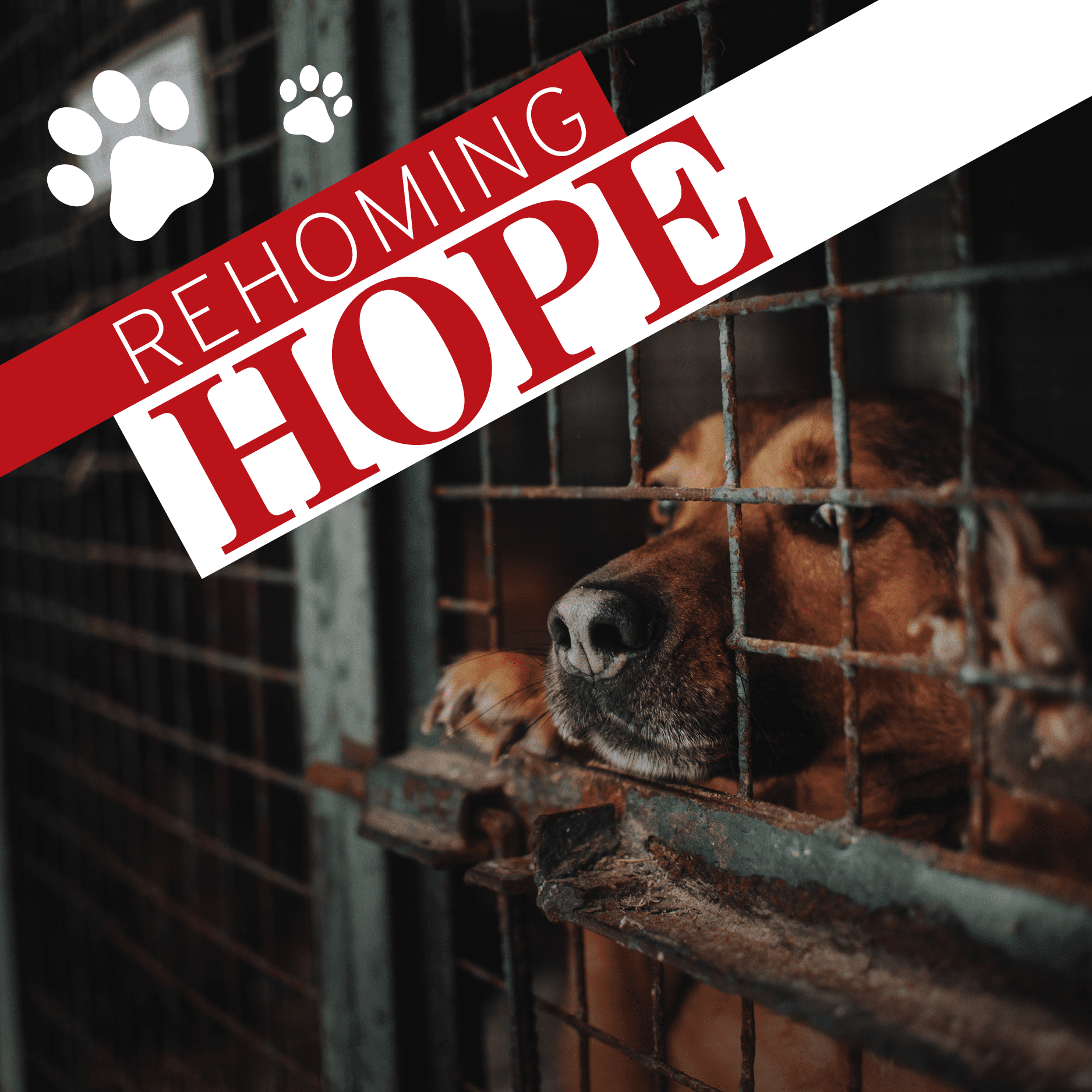
By Cynthia McFarland
Local Rescues Urge Adoptions to Save Lives

For every paw without a place, there’s a chance for love, rescue and a new beginning.
Every year, 6.3 million animals enter U.S. shelters. Thanks to adoptions, 4.1 million of those creatures find homes.
That’s the bright side.
Tragically, about 530,000 cats and 390,000 dogs aren’t adopted and end up euthanized.
That’s 920,000 individual lives of cats and dogs who can feel love, fear and pain.
They’ve done nothing to deserve a death sentence. These animals deserve forever homes. They are in the shelter system through no fault of their own.
Busting Adoption Myths
One of the biggest myths about shelter animals is that they have behavioral issues, are unhealthy or old.
“Most of the pets that end up in shelters have already had a family at one time, so they have basic knowledge about being in a home. Many are housebroken and good with kids,” says Angie Klein, executive director for the Humane Society of Lake County.
Full capacity of the shelter, which opened in 1976, is 16 dogs and about 30 cats. The most animals they’ve adopted out in one year is 529.
Another common myth is that shelter pets are “mutts,” so you need to buy from a breeder or pet shop if you want a purebred.
“You would be surprised at the number of purebreds who come through shelters. Florida also has a lot of purebred resources,” Angie says.
“At pet stores, you’re getting a ‘product,’ not a puppy that’s been cared for and knows how to interact with people. Pet stores have a lot of puppy-mill puppies that grew up in horrific conditions and often have genetic conditions. You may not know this right away, but these things can show up as they mature,” she notes.
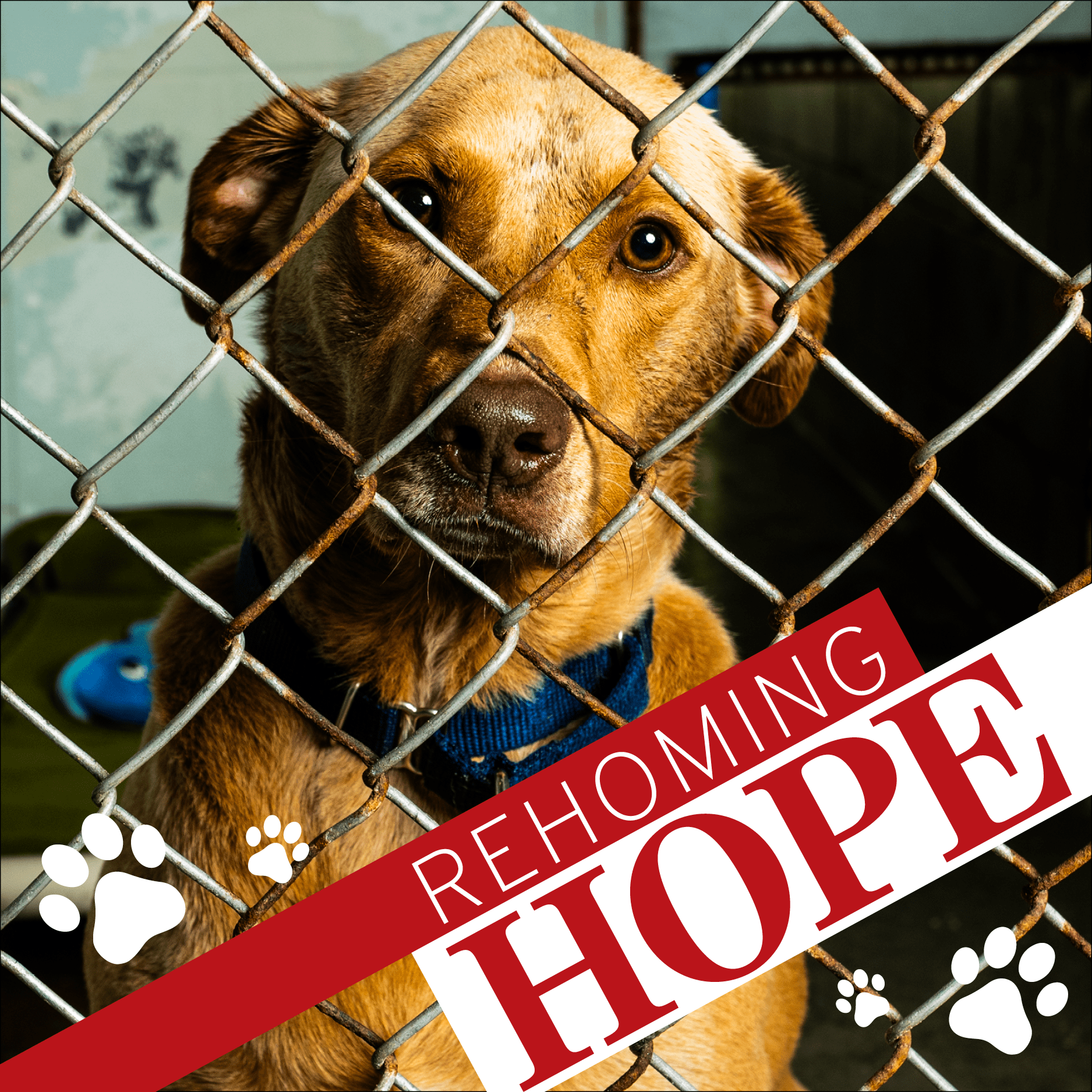
When you come to a shelter to adopt, you’re getting an animal that is fully vaccinated (if adult), microchipped, has already been checked for disease and has a clean bill of health.
“We’re involved with the prison program where dogs go through a 12-week program that includes house training and basic training to make them more adoptable,” says Angie.
Adoption saves at least two lives, sometimes more.
“When you adopt a shelter animal, you’re saving that animal and the next animal that can come in to fill that spot,” Angie says.
Since no-kill shelters like the Humane Society of Lake County also take pets from overstocked shelters, you open the door for another animal to be rescued from the cycle when you adopt.
Reputable shelters work hard to match animals and adopters.
“If you currently have a dog or cat, tell the shelter employee. We know our animals and ‘cat test’ all our dogs. We know which dogs are ‘cat friendly’ and friendly to other dogs,” Angie says.
If a family already has a dog, that pet should come to the shelter for a meet-and-greet with the perspective new dog to make sure they’re compatible.
“It’s important to realize this is a lifelong commitment. You’re getting this pet to enhance each other’s lives,” Angie says.
Shelters also work with adopters to get training when needed. They also offer low-cost vaccination clinics.
Humane Society of Lake County
16435 McKinley Rd., Umatilla, FL 32784
352.589.7400 | www.humanelake.com
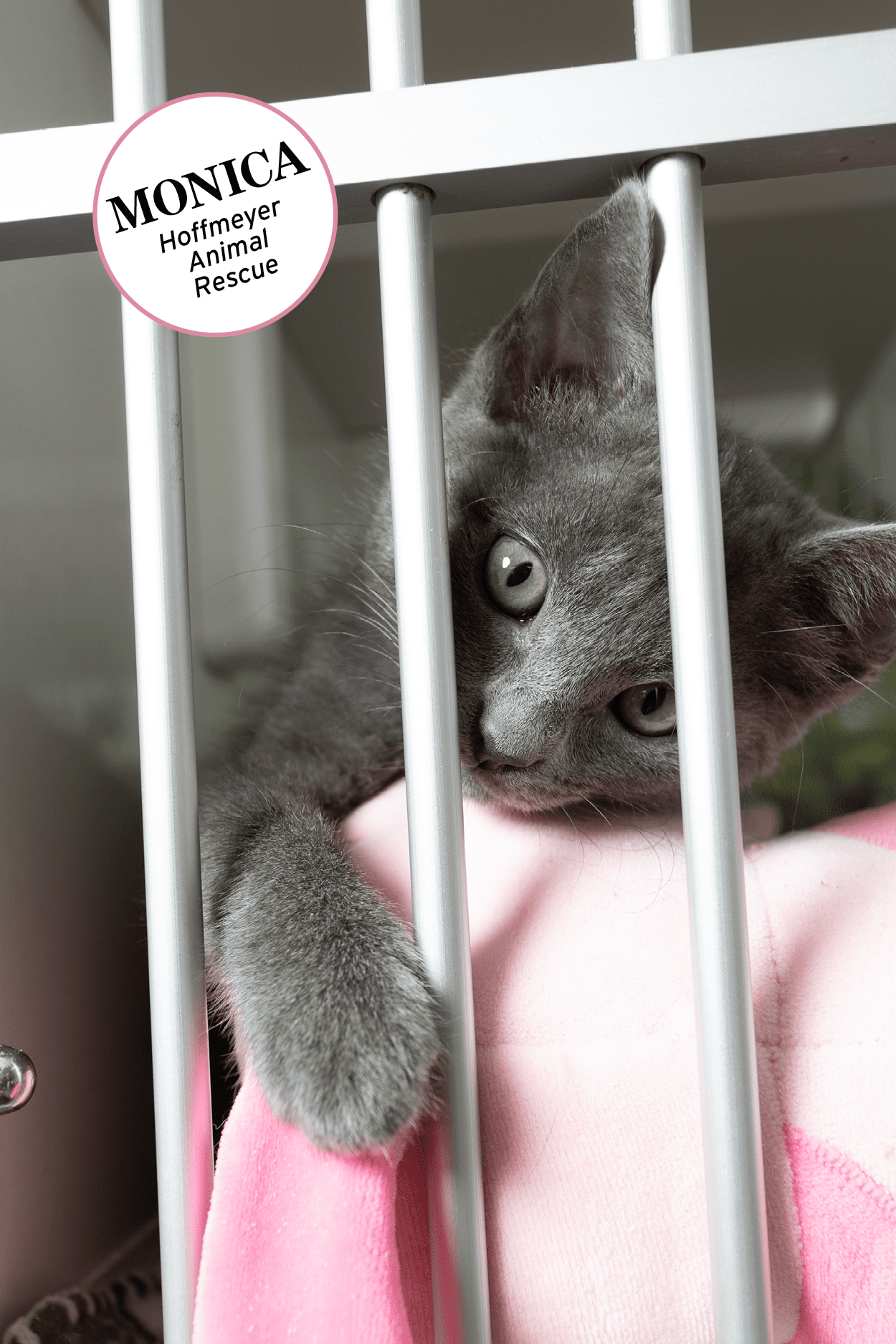
Emotional Journey
“Pets come into our care from a variety of previous circumstances, so the experience of each animal will be unique to that animal,” says Whitney Boylston, director of the office of animal services for Lake County.
The initial transition can be stressful for pets that lose comfort and stability of their home due to their guardian dying.
The scenario is much different for animals who come off the street or from negative situations. For them, the shelter may be the safest, most stable and loving environment they’ve ever known.
At the Lake County Animal Shelter, the goal is to help every animal adjust to changed circumstances and prepare each one for adoption to a forever home.
“We embrace a ‘fear free philosophy’ and all employees are trained with this. We treat the pets as individuals, read their body language and recognize their emotional and mental wellbeing as a priority,” Whitney says.
For “shut down” dogs that are frightened, quiet time in an office space may help them relax. Enrichment time and play time with compatible buddies is built into the routine for all animals to establish stability.
“The shelter is the best place for some animals in some situations, but for many other animals in other situations, the shelter may not be the best situation. If you find an animal in your neighborhood and don’t know the owner, you can register online for the Finder Foster program,” Whitney advises. “It’s an easy way to help the pet not experience the stress of the shelter and increase the odds of them getting back with their family.”
Many people don’t realize that 42 percent of “stray” animals are found within 400 feet of their front door. The majority are within a mile of their home.
If you find a dog or cat, you can bring the animal to the Lake County Animal Shelter drive-through to be scanned for a microchip. The shelter will provide any needed supplies (crate, food, vaccinations, flea treatment) before you take the animal home to foster. If the owner isn’t located, you can transition from foster to adopter.
“Finder Foster has really taken off over the last couple years to encourage the community to become a partner in animal welfare,” Whitney notes.
Lake County Animal Shelter has had 14,621 adoptions since its grand opening in January 2021.
Annually, they admit 5,500 to 6,500 animals. At press time, there were 156 dogs and 41 cats on site. A significant number of kittens were also in foster homes.
Most adoptions through the shelter include sterilization, vaccinations, microchipping and personalized ID tags. Promotions to encourage adoptions run regularly—for example, July features a Summer Lovin’ program with “Grease”-themed specials all month. Another promotion is planned for August, and cats are always adopt one at $10, get one free.
The fee to adopt a dog starts at only $20 and older dogs—who Whitney says desperately need loving, ‘all-about-them’ homes to see them through—are often sponsored, meaning compassionate end-of-life care is covered if needed.
The shelter also offers a “Working Cats” program for unsocialized cats that excel as rodent control “employees” in barn and warehouse environments.
If you want to make a difference, but can’t adopt at this time, donations of money and/or time are gratefully welcomed.
Whitney says volunteers are always needed to spend time loving on animals in the shelter.
“This one-on-one time is impactful. We are always looking for dedicated animal lovers to join our team,” she says. “The single greatest gift the community can give shelter pets is their time. There’s no substitute for loving human interaction for the pets in our care.”
Lake County Animal Shelter
12280 County Rd 448, Tavares, FL 32778
352.343.9688 | www.lakecountyfl.gov/animal-shelter

Fostering Saves Lives
“We can’t erase an animal’s past, but we can underwrite their future,” notes Tarah Woelk, rescue coordinator at Hoffmeyer Animal Rescue, which has been saving animals since 2019.
Because the facility’s main adoption center in Tavares houses only cats, the rescue relies on a team of fosters to house dogs and additional cats. They took in 272 cats and dogs in April and 113 were adopted.
All cats are fully vetted before adoption, so you can adopt confidently knowing that your new pet is healthy, spayed/neutered, dewormed, flea treated, microchipped and fully vaccinated (adults) or at least received their first series of shots (kittens).
In April, the rescue had 319 animals in foster care — temporary homes that take in animals under eight weeks old, those needing care after surgery or rescue, or when the main facility is full.
“We can’t accept as many animals without fosters. These temporary homes are lifesaving,” says Tarah, who notes that most fosters are volunteers.
“Many people want to help but can’t take on another permanent pet. Our fosters normally provide food and litter as their donation. Hoffmeyer takes care of any veterinary and medical expenses,” she explains.
The shortest foster time is one week; the longest is 16 weeks. Many fosters take animals for somewhere between the minimum and maximum.
Senior and hospice fosters are on an as-needed basis.
“Giving quality time at the end of life to a senior or ailing animal is so important and Hoffmeyer takes care of the medical and final expense costs,” says Tarah, noting that most adopters want a kitten or young cat with a long life ahead.
Fostering gives caretakers an opportunity to get to know a cat’s personality and behavior, which makes it easier for the rescue to place them.
“Fostering is very flexible, and foster families change the animals’ lives in such important ways. All the good work put into making them friendly, healthy and able to be part of a family makes the foster the most important steppingstone between rescue and adoption,” says Tarah.
Want to change lives by fostering? Complete the foster application on Hoffmeyer’s website and they’ll reach out to you.
Hoffmeyer Animal Rescue
296 Silverado Street, Tavares, FL 32778
342.455.7421 | www.hoffmeyeranimalrescue.com
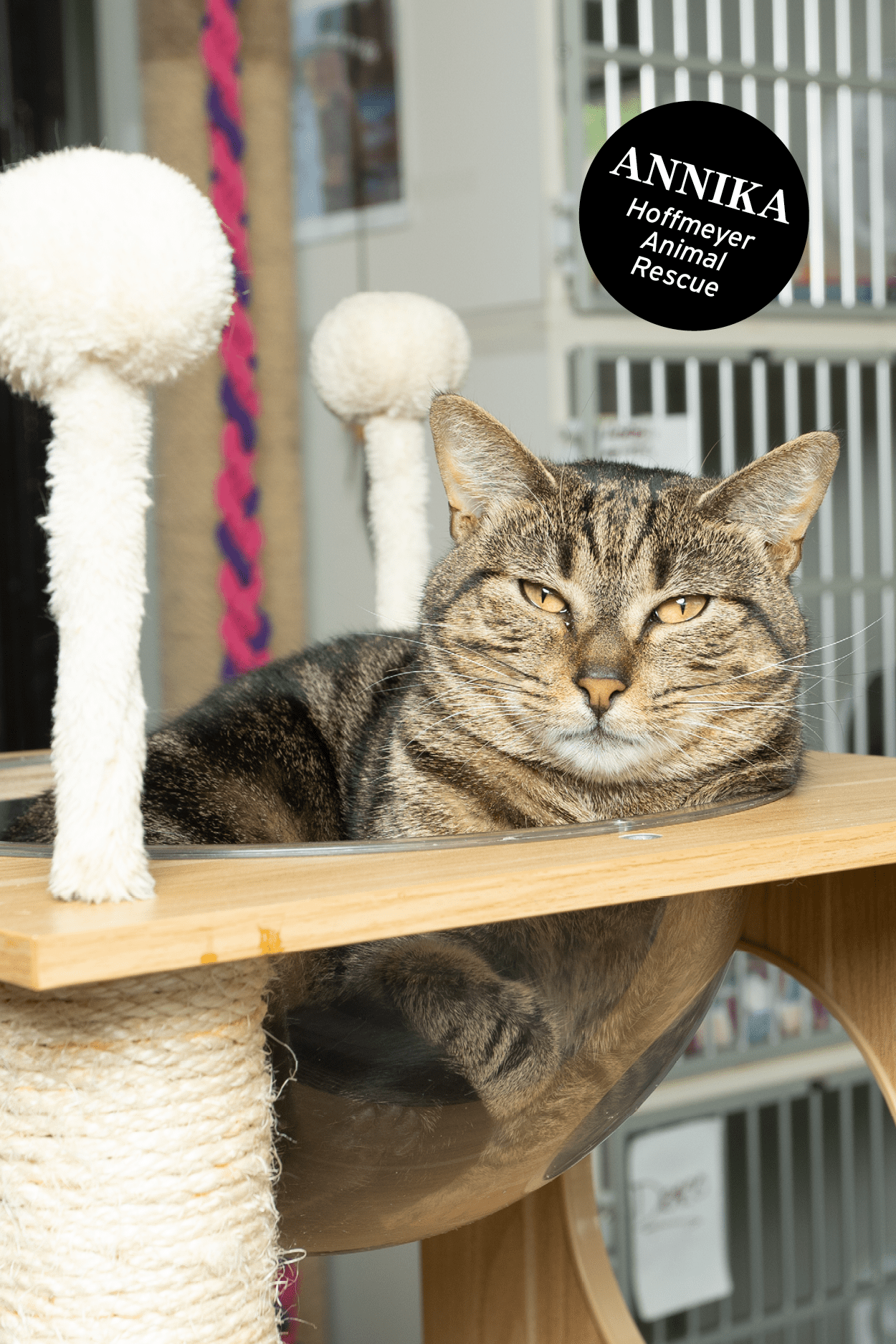
Giving Up A Pet
Nationwide, about 30 percent of animals in shelters are there because of owner surrender.
People give up their pets for a variety of reasons. Financial challenges, moving and owner health issues top the list.
“At our shelter the biggest reasons we see are an owner developing health problems, the owner dies or has to move to assisted living,” says Cheryl Courtright, shelter director of Humane Society of Sumter County in Lake Panasoffkee.
The shelter, which opened in 1982, has dogs and cats at their facility and in foster care. An average of 45 animals are adopted each month.
Surrender should be a last resort.
“If an owner is planning to surrender their pet because of the economy, we try to help them keep the dog. Our Kibbles Program provides food if the owner meets the low-income criteria,” Cheryl says. “We also have a spay/neuter program to help low-income owners keep a pet rather than surrender it. We try to help with every alternative we can for the owner to keep their pet. We are more than a shelter; we work with our community with these programs.”
When an owner has exhausted all options and feels they have no other choice, surrendering their pet to a reputable no-kill shelter can be a responsible, although sad, decision. Surrendering is always a better option than just abandoning the pet, which unfortunately, happens often.
“An abandoned pet has the risk of being hit by a car, starving or becoming prey. They’re domestic animals and can’t survive on their own. It’s better to surrender the animal to a shelter where they will be fed, well taken care of and have a chance at a forever home,” Cheryl says.
Humane Society of Sumter County
994 County Road 529a, Lake Panasoffkee, FL 33538
352.793.9117 | www.hsspca.org
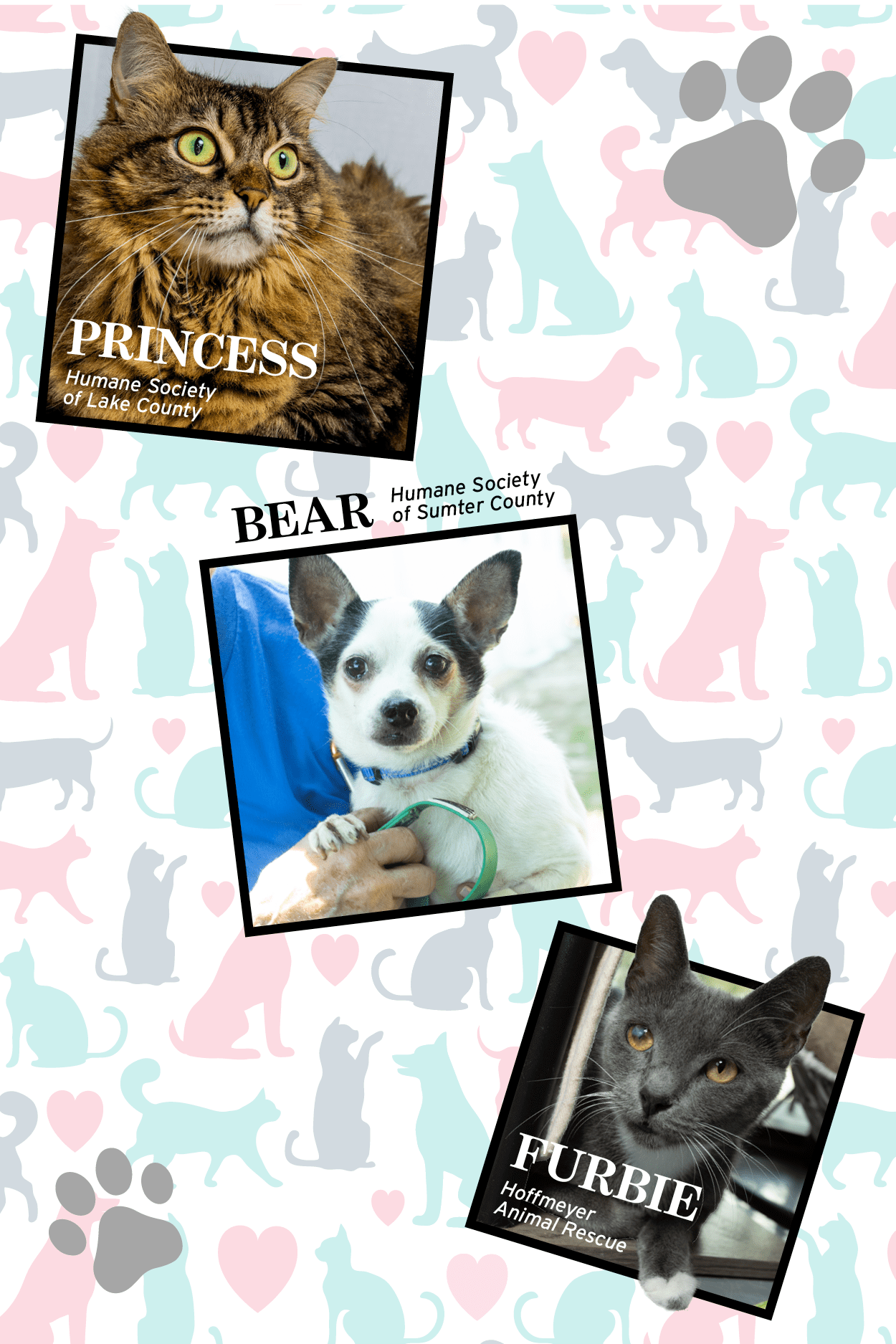
Available Pets in
Lake & Sumter Counties
Photos: Nicole Hamel + Provided
"I fell in love with words early on and knew from fourth grade that I wanted to be a writer,” says Cynthia McFarland. A full-time freelancer since 1993 and the author of nine non-fiction books, her writing has earned regional and national awards. Cynthia lives on a small farm north of Ocala; her kids have fur and four legs


